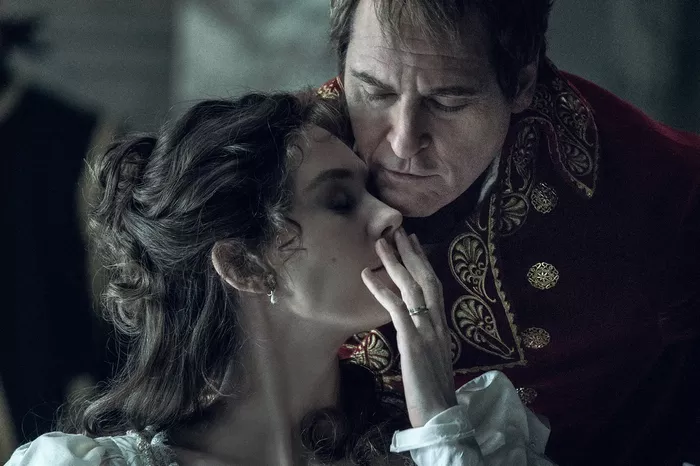As Ridley Scott’s film “Napoleon” storms into theaters, it brings with it a barrage of mixed reviews. The movie is lauded for its epic battle scenes, grand spectacle, and stellar performances, providing audiences with a cinematic journey into the tumultuous life of one of history’s most iconic figures. However, amidst the praise lies a notable criticism – the film’s deviation from historical accuracy, particularly in its portrayal of Napoleon and Josephine’s relationship timeline.
1. Epic Battles and Spectacle: Ridley Scott’s Cinematic Triumphs
Before delving into the historical nuances, it’s essential to acknowledge the cinematic triumphs that Ridley Scott brings to the table. The epic battle scenes are a visual feast, capturing the grandeur and chaos of Napoleonic warfare with a flair that only a director of Scott’s caliber can achieve. The spectacle and scale of the film immerse audiences in the heart of history, making it a cinematic experience to remember.
2. Stellar Performances: Bringing Characters to Life
One of the film’s undeniable strengths lies in the stellar performances of its cast. The actors breathe life into historical figures, with the portrayal of Napoleon and Josephine adding layers of complexity to their characters. The nuances and emotions conveyed on screen contribute to the film’s immersive quality, allowing audiences to connect with the iconic figures on a more personal level.
3. The Achilles Heel: Historical Inaccuracy in Relationship Timelines
However, where “Napoleon” stumbles is in its treatment of historical accuracy, particularly concerning the marriage of Napoleon and Josephine. The film takes creative liberties with their relationship timeline, deviating from the historical record and reshaping the narrative to fit a more dramatic arc. While artistic license is expected in historical dramas, the extent of the deviations raises questions about the balance between entertainment and fidelity to the facts.
4. A Divorce Unfolds: Creative Liberties Take Center Stage
One of the most glaring inaccuracies revolves around Napoleon and Josephine’s divorce in the movie. Here, creative liberties take center stage, crafting a narrative that diverges significantly from historical accounts. The film introduces a scene where Napoleon publicly slaps Josephine, a dramatic flourish that not only lacks historical grounding but also misrepresents the complex dynamics of their relationship.
5. The Real Timeline: When Did Napoleon and Josephine Get Married?
To unravel the inaccuracies, it’s crucial to revisit the real timeline of Napoleon and Josephine’s marriage. Contrary to the film’s depiction, the couple did not part ways with a dramatic public slap. Instead, their union faced challenges due to Josephine’s inability to produce an heir, leading to a mutual decision to divorce. The historical record reflects a more nuanced and amicable separation than the movie suggests, highlighting the importance of separating fact from fiction.
6. The Impact of Inaccuracy: Distorting Historical Perception
While some may argue that historical dramas should be forgiven for taking liberties in the name of entertainment, the impact of such inaccuracies cannot be overlooked. Inaccurate portrayals, especially in high-profile films, risk distorting public perception of historical events and figures. In the case of Napoleon and Josephine, the film’s dramatic liberties may contribute to a skewed understanding of their relationship dynamics and the reasons behind their eventual separation.
7. The Balancing Act: Entertainment vs. Historical Fidelity
The debate over historical accuracy in films like “Napoleon” prompts a broader discussion about the delicate balancing act between entertainment and historical fidelity. While cinematic storytelling often demands embellishments for dramatic effect, there’s a responsibility to maintain a semblance of truth, especially when portraying real-life events and figures. Striking this balance is essential to ensure that audiences leave the theater not only entertained but also with a reasonably accurate understanding of history.
Conclusion: Navigating the Cinematic Landscape of Historical Dramas
In conclusion, Ridley Scott’s “Napoleon” presents a cinematic spectacle filled with epic battles, stellar performances, and dramatic storytelling. However, the film’s departure from historical accuracy, particularly in its portrayal of Napoleon and Josephine’s relationship timeline, raises important questions about the responsibilities of filmmakers in handling historical subjects. As audiences immerse themselves in the grandeur of Scott’s vision, it’s crucial to approach historical dramas with a discerning eye, recognizing the line between artistic interpretation and the preservation of historical truth. “Napoleon” may dazzle with its cinematic brilliance, but the real triumph lies in the delicate balance between entertainment and an honest reflection of the past.

